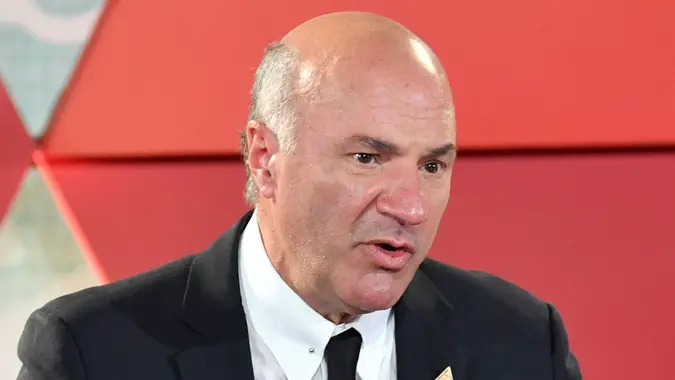5 Things That Could Spoil Your Plan To Retire in 2025

Commitment to Our Readers
GOBankingRates' editorial team is committed to bringing you unbiased reviews and information. We use data-driven methodologies to evaluate financial products and services - our reviews and ratings are not influenced by advertisers. You can read more about our editorial guidelines and our products and services review methodology.

20 Years
Helping You Live Richer

Reviewed
by Experts

Trusted by
Millions of Readers
If you’re thinking of retiring in 2025, congratulations! You’ve spent years saving and preparing financially for this moment. But how do you know when you’re actually ready?
One way is to review common retirement risks. The following five can impact whether you get to retire next year or need to wait a little longer before taking the leap. Here’s what you need to know.
Holding Too Many Volatile Investments
Experts say your asset allocation should change as you get closer to retirement. They generally advise transferring money out of the stock market and into more stable assets, like government bonds.
The U.S. stock market has reliably increased in value over time, but it can fluctuate tremendously on the way there. You don’t want to get caught in a downward trend just when you’re trying to retire. Otherwise, you could be forced to cash out when prices are down — leaving you with less retirement funds than you need.
You may still want to hold some of your portfolio in an asset like an S&P 500 fund to benefit from the ongoing growth of the U.S. economy. But talk to a financial advisor to figure out the right percentage.
Your Changing Retirement Goals
It’s also worth considering how your retirement goals may evolve through 2025 and beyond. Once you quit working, you may realize that the retirement life you envisioned isn’t the one you want.
For example, maybe you planned for a quiet retirement in the country but actually want to travel more. Or you might discover a new passion project that requires some financial backing.
The best way to prepare for this risk is to leave yourself some cushion in your financial plan. If you save a little more than you think you need, you’ll have more flexibility once you retire.
Unexpected Requests for Financial Support
Throughout your career, you may have financially supported children, parents and other close family members in various ways. Will that continue after you retire? Even if you’re not planning on it, the requests could come.
That’s why it’s smart to talk about this issue with anyone who may expect future financial support. You may be able to provide that support with a little planning. But you can tell your loved ones that, after retirement, you aren’t able to provide immediate financial assistance as you once did.
Unforeseen Health Issues
Next, remember that health costs rise exponentially with age. You may face issues soon after retiring that drain your budget faster than expected. In the long run, this can lead to you running out of retirement funds before you’re ready.
The best way to prepare is with great health insurance. That could mean supplementing base Medicare with private coverage. You could also contribute to a health savings account (HSA). This would give you a backup source of funds to tap into when necessary without impacting your broader retirement budget.
Of course, you can’t plan for everything. But setting aside a little extra for health costs can go a long way toward keeping your finances on track.
Not Leaving Yourself Enough Financial Wiggle Room
Financial planning for retirement can be difficult for many reasons. But one key challenge is that you don’t know exactly how costs will evolve over the coming decades.
For instance, if inflation increases more than expected, after ten years, you might find that the retirement budget you planned isn’t reflective of your actual living costs. You could also have unexpected costs related to increasing taxes, home insurance becoming more expensive and other things you just can’t plan for.
The solution is to save a little more than you need for retirement. This will make you more prepared to deal with unexpected costs — some of which you’re almost certain to experience. If you’re not in a position to save more, try setting yourself up with a source of passive income for retirement. Doing so supplements your savings throughout retirement to help you become more resilient in changing economic conditions.
 Written by
Written by  Edited by
Edited by 

























